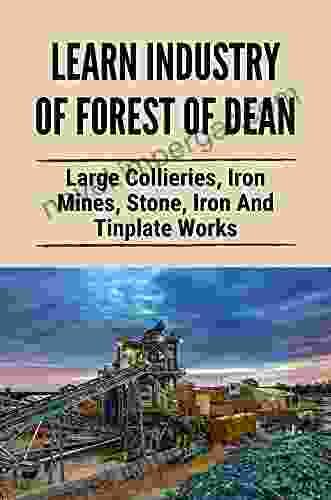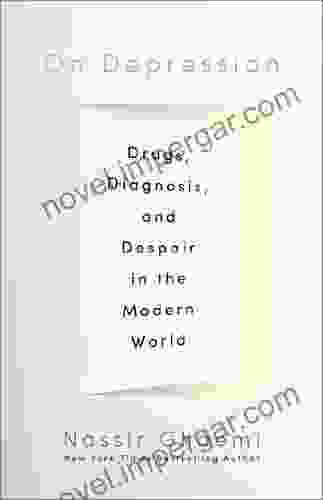How Evangelicals Became Israel's Best Friend: A Journey From Hostility to Unwavering Support

The relationship between evangelicals and Israel is one of the most significant and surprising developments in modern religious history. For centuries, evangelicals were staunch critics of Judaism, viewing Jews as enemies of Christ and the obstacles to his return. However, in the late 19th and early 20th centuries, a dramatic shift occurred, and evangelicals became some of Israel's most ardent supporters.
This transformation was driven by a complex interplay of theological, political, and cultural factors. Theologians such as John Nelson Darby and Cyrus Scofield developed a dispensationalist interpretation of the Bible that saw the creation of the state of Israel as a necessary step in God's plan for the end times. This view was embraced by many evangelicals, who saw Israel's rebirth as a sign of the imminent return of Christ.
4.5 out of 5
| Language | : | English |
| File size | : | 3846 KB |
| Text-to-Speech | : | Enabled |
| Word Wise | : | Enabled |
| Print length | : | 336 pages |
| Lending | : | Enabled |
Political factors also played a role. The United States' support for Israel after its founding in 1948 resonated with many evangelicals, who saw America as a force for good in the world. Additionally, the Cold War created a common enemy in the Soviet Union, which was seen as a threat to both the United States and Israel.
Cultural factors also contributed to the growing bond between evangelicals and Israel. The rise of Christian Zionism, a movement that advocates for the support of Israel based on biblical prophecy, gained significant traction among evangelicals. Additionally, the Holocaust had a profound impact on many evangelicals, who were moved by the suffering of the Jewish people and became determined to support their cause.
Today, evangelicals are one of the most important constituencies for Israel in the United States. They provide financial, political, and diplomatic support for the Jewish state, and their influence is likely to continue to grow in the years to come.
Theological Roots of Evangelical Support for Israel
The theological roots of evangelical support for Israel can be traced back to the 19th century. At that time, a number of evangelical theologians developed a dispensationalist interpretation of the Bible. Dispensationalism is a system of biblical interpretation that divides history into a series of distinct dispensations, or periods of time. Each dispensation is characterized by a particular relationship between God and humanity.
According to dispensationalist theology, the present dispensation is the Church Age, which began with the ascension of Christ. The Church Age will end with the Rapture, when all true believers will be taken up to heaven. After the Rapture, there will be a seven-year period of tribulation, followed by the Second Coming of Christ and the establishment of a thousand-year reign of peace on earth.
Dispensationalists believe that the creation of the state of Israel is a sign of the imminent return of Christ. They see Israel as a key player in the end-times prophecies, and they believe that it is their duty to support the Jewish state.
Political Factors in the Evangelical-Israel Relationship
In addition to theological factors, political factors have also played a role in the development of the evangelical-Israel relationship. The United States' support for Israel after its founding in 1948 resonated with many evangelicals, who saw America as a force for good in the world. Additionally, the Cold War created a common enemy in the Soviet Union, which was seen as a threat to both the United States and Israel.
In recent years, the evangelical-Israel relationship has become increasingly intertwined with American politics. Evangelical voters have been a key constituency for Republican candidates, and they have played a significant role in shaping the party's pro-Israel policies.
Cultural Factors in the Evangelical-Israel Relationship
Cultural factors have also contributed to the growing bond between evangelicals and Israel. The rise of Christian Zionism, a movement that advocates for the support of Israel based on biblical prophecy, has gained significant traction among evangelicals. Additionally, the Holocaust had a profound impact on many evangelicals, who were moved by the suffering of the Jewish people and became determined to support their cause.
Today, evangelicals are one of the most important constituencies for Israel in the United States. They provide financial, political, and diplomatic support for the Jewish state, and their influence is likely to continue to grow in the years to come.
The Future of the Evangelical-Israel Relationship
The future of the evangelical-Israel relationship is uncertain. Some experts believe that the relationship will continue to grow stronger, as evangelicals become more involved in Israeli politics and society. Others believe that the relationship could be strained by the increasing polarization of American politics.
Regardless of the challenges that lie ahead, the evangelical-Israel relationship is a unique and important one. It is a relationship that is based on a shared belief in the Bible, a common commitment to the state of Israel, and a deep-seated friendship between two peoples.
The relationship between evangelicals and Israel is a complex and fascinating one. It is a relationship that has been shaped by theological, political, and cultural factors, and it is a relationship that is likely to continue to evolve in the years to come.
4.5 out of 5
| Language | : | English |
| File size | : | 3846 KB |
| Text-to-Speech | : | Enabled |
| Word Wise | : | Enabled |
| Print length | : | 336 pages |
| Lending | : | Enabled |
Do you want to contribute by writing guest posts on this blog?
Please contact us and send us a resume of previous articles that you have written.
 Book
Book Novel
Novel Page
Page Chapter
Chapter Text
Text Story
Story Genre
Genre Reader
Reader Library
Library Paperback
Paperback E-book
E-book Magazine
Magazine Newspaper
Newspaper Paragraph
Paragraph Sentence
Sentence Bookmark
Bookmark Shelf
Shelf Glossary
Glossary Bibliography
Bibliography Foreword
Foreword Preface
Preface Synopsis
Synopsis Annotation
Annotation Footnote
Footnote Manuscript
Manuscript Scroll
Scroll Codex
Codex Tome
Tome Bestseller
Bestseller Classics
Classics Library card
Library card Narrative
Narrative Biography
Biography Autobiography
Autobiography Memoir
Memoir Reference
Reference Encyclopedia
Encyclopedia Roy Osing
Roy Osing Roham Alvandi
Roham Alvandi Sara Ahmed
Sara Ahmed Robert Jackson
Robert Jackson Shakera Williams
Shakera Williams Virginia Berridge
Virginia Berridge Sarah Rivett
Sarah Rivett Roger Barth
Roger Barth V Subhash
V Subhash Todd Dufresne
Todd Dufresne Robbie Shilliam
Robbie Shilliam Ron Lovell
Ron Lovell Wesley L Fox
Wesley L Fox Vikas Bhushan
Vikas Bhushan Ronny Emerson
Ronny Emerson Rutherford Aris
Rutherford Aris Sandra Lauderdale Graham
Sandra Lauderdale Graham Schahrzad Morgan
Schahrzad Morgan Xiaojian Zhao
Xiaojian Zhao Robert C Dykstra
Robert C Dykstra
Light bulbAdvertise smarter! Our strategic ad space ensures maximum exposure. Reserve your spot today!

 Mikhail BulgakovSingularity Politics and Poetics: A Journey Through the Horizons of the...
Mikhail BulgakovSingularity Politics and Poetics: A Journey Through the Horizons of the... Fred FosterFollow ·14k
Fred FosterFollow ·14k Manuel ButlerFollow ·14.3k
Manuel ButlerFollow ·14.3k Quincy WardFollow ·18.9k
Quincy WardFollow ·18.9k Jayson PowellFollow ·18k
Jayson PowellFollow ·18k Adrien BlairFollow ·5.9k
Adrien BlairFollow ·5.9k Ivan TurnerFollow ·9.3k
Ivan TurnerFollow ·9.3k Ross NelsonFollow ·9k
Ross NelsonFollow ·9k Isaac MitchellFollow ·15.5k
Isaac MitchellFollow ·15.5k

 Colt Simmons
Colt SimmonsLarge Collieries Iron Mines Stone Iron And Tinplate...
Step back in time and witness...

 Zachary Cox
Zachary CoxUnlocking the Secrets of Woody Plants: An In-Depth...
: Embark on a captivating journey into the...

 Yasunari Kawabata
Yasunari KawabataIntroducing 'Librarian Guide: 3rd Edition' – The Ultimate...
In the dynamic and ever-evolving...

 Jerome Blair
Jerome BlairEvading Honesty: A Masterful Exploration of Deceit and...
Prepare to be captivated...

 Timothy Ward
Timothy WardLove Is Real: A Novel of Love, Loss, and the Enduring...
Prepare to embark on a...
4.5 out of 5
| Language | : | English |
| File size | : | 3846 KB |
| Text-to-Speech | : | Enabled |
| Word Wise | : | Enabled |
| Print length | : | 336 pages |
| Lending | : | Enabled |











